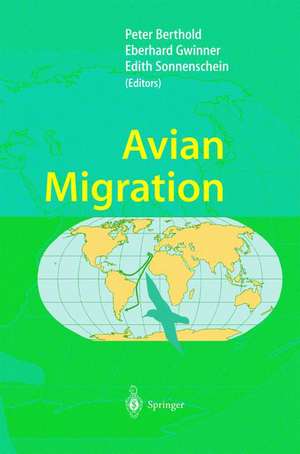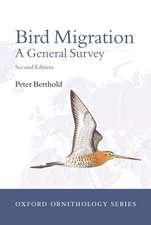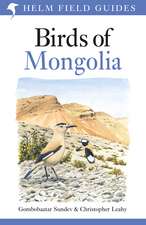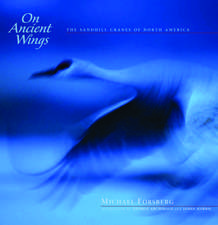Avian Migration
Editat de Peter Berthold, Eberhard Gwinner, Edith Sonnenscheinen Limba Engleză Hardback – 21 mai 2003
| Toate formatele și edițiile | Preț | Express |
|---|---|---|
| Paperback (1) | 1567.59 lei 38-44 zile | |
| Springer Berlin, Heidelberg – 13 oct 2010 | 1567.59 lei 38-44 zile | |
| Hardback (1) | 1836.01 lei 43-57 zile | |
| Springer Berlin, Heidelberg – 21 mai 2003 | 1836.01 lei 43-57 zile |
Preț: 1836.01 lei
Preț vechi: 2239.03 lei
-18% Nou
Puncte Express: 2754
Preț estimativ în valută:
351.33€ • 367.74$ • 292.41£
351.33€ • 367.74$ • 292.41£
Carte tipărită la comandă
Livrare economică 31 martie-14 aprilie
Preluare comenzi: 021 569.72.76
Specificații
ISBN-13: 9783540434085
ISBN-10: 3540434089
Pagini: 624
Ilustrații: XVI, 610 p. 146 illus., 19 illus. in color.
Dimensiuni: 155 x 235 x 43 mm
Greutate: 1 kg
Ediția:2003
Editura: Springer Berlin, Heidelberg
Colecția Springer
Locul publicării:Berlin, Heidelberg, Germany
ISBN-10: 3540434089
Pagini: 624
Ilustrații: XVI, 610 p. 146 illus., 19 illus. in color.
Dimensiuni: 155 x 235 x 43 mm
Greutate: 1 kg
Ediția:2003
Editura: Springer Berlin, Heidelberg
Colecția Springer
Locul publicării:Berlin, Heidelberg, Germany
Public țintă
ResearchDescriere
P. Berthold and E. Gwinnd Bird migration is an intriguing aspect of the living world - so much so that it has been investigated for as long, and as thoroughly, as almost any other natural phenomenon. Aristotle, who can count as the founder of scientific ornithology, paid very close attention to the migrations of the birds he ob served, but it was not until the reign of Friedrich II, in the first half of the 13th century, that reliable data began to be obtained. From then on, the data base grew rapidly. Systematic studies of bird migration were introduced when the Vogelwarte Rossitten was founded, as the first ornithological biological observation station in the world (see first chapter "In Memory of Vogelwarte Rossitten"). This area later received enormous impetus when ex perimental research on the subject was begun: the large-scale bird-ringing experiment initiated in Rossitten in 1903 by Johannes Thienemann (who was inspired by the pioneering studies of C. C. M. Mortensen), the experiments on photoperiodicity carried out by William Rowan in the 1920s in Canada and retention and release experiments performed by Thienemann in the 1930s in Rossitten, the first experimental study on the orientation of migratory birds. After the Second World War, migration research, while continuing in the previous areas, also expanded into new directions such as radar ornithology, ecophysiology and hormonal control mechanisms, studies of evolution, ge netics, telemetry and others.
Cuprins
Evolution of Migration, Genetics and Related Behavioural Aspects.- Evolution of Bird Migration: A Phylogenetic and Biogeographic Perspective.- Recent Changes in Migratory Behaviour of Birds: A Compilation of Field Observations and Ringing Data.- Ecology and Evolution of Hummingbird Population Movements and Migration.- Quantitative Genetic Analysis of Migratory Behaviour.- Physiology and Ecophysiology of Migration.- Circannual and Circadian Contributions to the Timing of Avian Migration.- Migratory Behavior: New Insights from Captive Studies.- Avian Migration: Regulation of Facultative-Type Movements.- Behavioural and Hormonal Dynamics in a Partial Migrant — the Willow Tit.- Life History and Ecophysiological Adaptations to Migration in Australian Birds.- Behavioural and Physiological Reactions to Environmental Variation in Bird Migration: A Review.- Morphological Adaptations, Moult, Patterns of Migration.- Morphological Consequences of Migration in Passerines.- Within Ten Feathers: Primary Moult Strategies of Migratory Waders (Charadrii).- Optimizing Migration in a Reluctant and Inefficient Flier: The Eared Grebe.- Geographical Patterns in Bird Migration.- Nocturnal Migration of Passerines in the Desert-Highland Zone of Western Central Asia: Selected Aspects.- Relationships Between Migration and Breeding Strategies in Arctic Breeding Birds.- Strategies of Migration, Stopover Biology and Nutrition.- Bird Migration Speed.- Energetic Savings by Organ Adjustment During Long Migratory Flights in Garden Warblers (Sylvia borin).- Priority Access to Food in Migratory Birds: Age, Sex and Motivational Asymmetries.- Interdependence of Flight and Stopover in Migrating Birds: Possible Effects of Metabolic Constraints During Refuelling on Flight Metabolism.- Fuel Deposition Rates in Migrating Birds: Causes, Constraints and Consequences.- Nutritional Strategies in Migratory Birds.- Modern Approaches, Techniques, Conservation.- Using a Network of WSR-88D Weather Surveillance Radars to Define Patterns of Bird Migration at Large Spatial Scales.- The Radar Window to Bird Migration.- Snowy Owl Movements: Variation on the Migration Theme.- Orientation in “Featureless” Environments: The Extreme Case of Pelagic Birds.- Making Migratory Connections with Stable Isotopes.- Individual Variability in Experiments with Emlen Funnels.- Conservation of Migratory Birds.- Orientation and Flight.- Magnetic Navigation by an Avian Migrant?.- Mechanisms of Orientation and Navigation in Migratory Birds.- Migratory Systems as Adaptive Responses to Spatial and Temporal Variability in Orientation Stimuli.- Avian Long-Distance Navigation: Experiments with Migratory Birds.- Spatiotemporal Orientation Strategies of Long-Distance Migrants.- Stored Fat and the Migratory Orientation of Birds.- Chasing a Wild Goose: Posthatch Growth of Locomotor Muscles and Behavioural Physiology of Migration of an Arctic Goose.- The Drag Paradox: Measurements of Flight Performance and Body Drag in Flying Birds.- Twenty-Three Testable Predictions About Bird Flight.- Interdisciplinary Aspects.- Bird Migration as an Interdisciplinary Tool for Global Cooperation.- References.- Common and scientific names of birds and animals.
Textul de pe ultima copertă
The reader of this comprehensive presentation benefits from an outstanding overview of all aspects of the fascinating phenomenon of bird migration. The book is written by leading experts from around the world. The text summarizes reviews and discussions of the most recent hypotheses. In doing so, it covers the entire research field from phenomenology through to ecology, physiology, control mechanisms, orientation, evolutionary aspects and conservation measures. It also examines the most modern methodological approaches including, satellite trakcking, molecular techniques or stable isotope investigations and envisages forthcoming developments in the course of global warming.
Caracteristici
The latest in bird migration: from satellite trakcking to molecular biology




